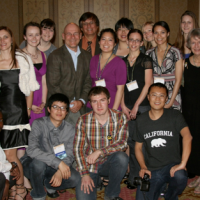The National Girls Collaborative Project:
Throughout the United States, many initiatives are underway to engage youth in science, technology, engineering, and mathematics (STEM). There are also a large number of organizations seeking to increase diversity and gender equity in STEM. The National Girls Collaborative Project (NGCP) occupies a unique role among these activities in that it facilitates collaboration with all stakeholders focused on increasing diversity and engagement in STEM, connects them to girl-serving STEM programs, and provides access to information and resources that enhance the impact and effectiveness of these initiatives.








